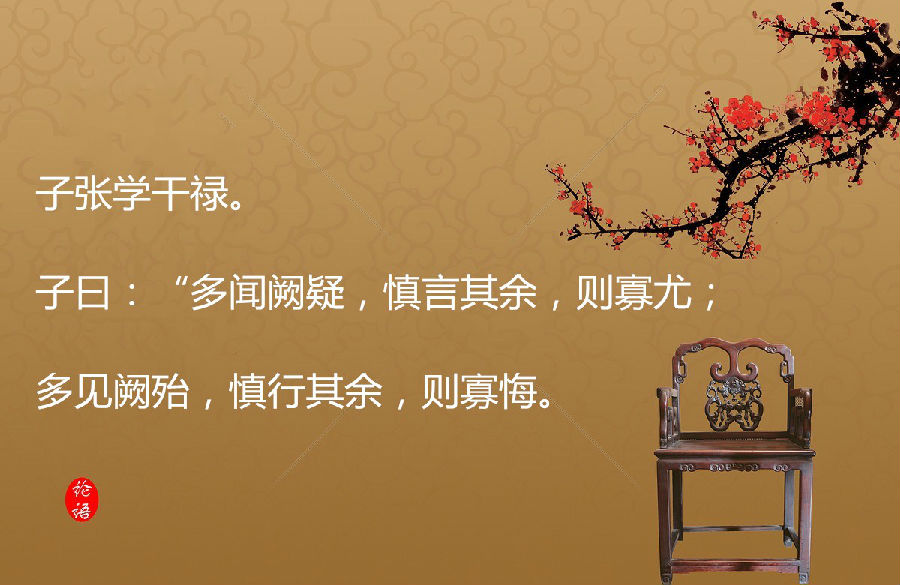Tsze-chang was learning with a view to official emolument.
子张学干禄。
The Master said, "Hear much and put aside the points of which you stand in doubt,
子曰:“多闻阙疑,
while you speak cautiously at the same time of the others: then you will afford few occasions for blame.
慎言其余,则寡尤;
See much and put aside the things which seem perilous, while you are cautious at the same time in carrying the others into practice:
多见阙殆,慎行其余,
then you will have few occasions for repentance.
则寡悔。
When one gives few occasions for blame in his words, and few occasions for repentance in his conduct, he is in the way to get emolument."
言寡尤,行寡悔,禄在其中矣。”

The Duke Ai asked, saying, "What should be done in order to secure the submission of the people?"
哀公问曰:“何为则民服?”
Confucius replied, "Advance the upright and set aside the crooked, then the people will submit.
孔子对曰:“举直错诸枉,则民服;
Advance the crooked and set aside the upright, then the people will not submit."
举枉错诸直,则民不服。”
Chi K'ang asked how to cause the people to reverence their ruler, to be faithful to him, and to go on to nerve themselves to virtue.
季康子问:“使民敬、忠以劝,如之何?”
The Master said, "Let him preside over them with gravity; then they will reverence him.
子曰:“临之以庄,则敬;
Let him be final and kind to all; then they will be faithful to him.
孝慈,则忠;
Let him advance the good and teach the incompetent; then they will eagerly seek to be virtuous."
举善而教不能,则劝。”


